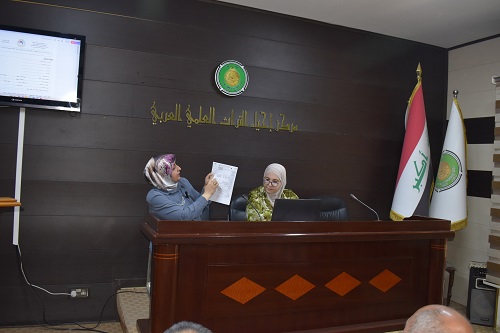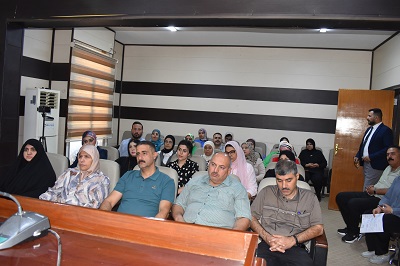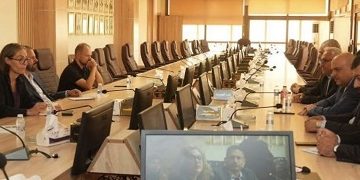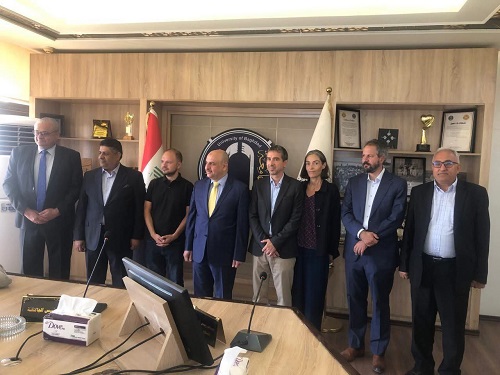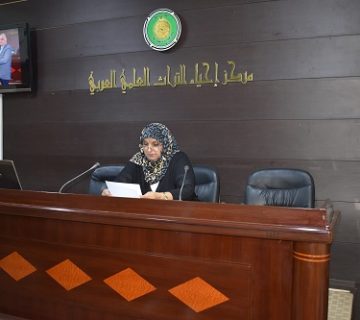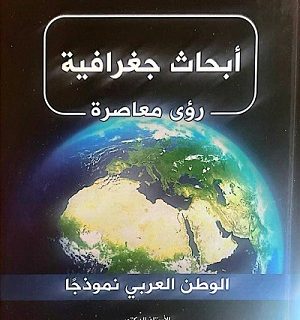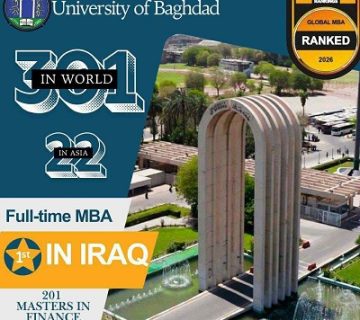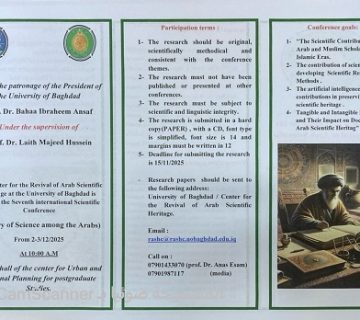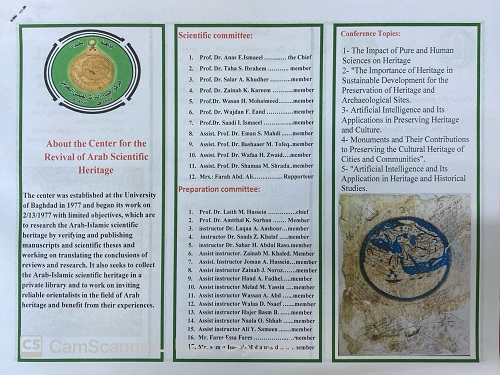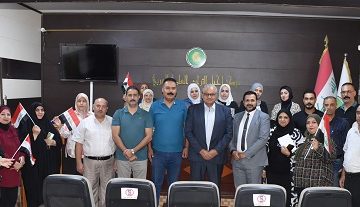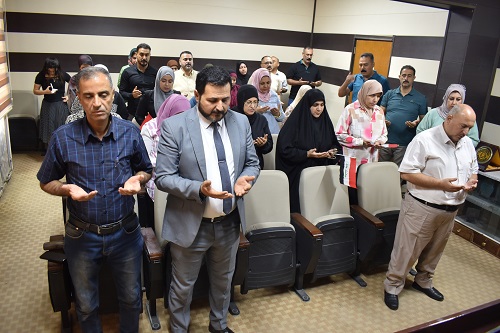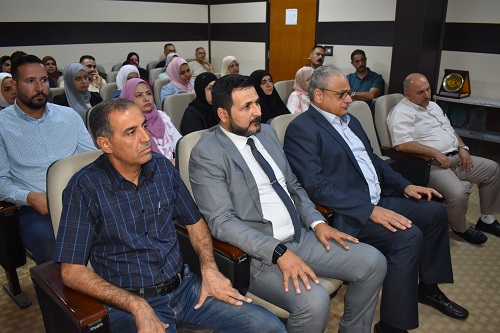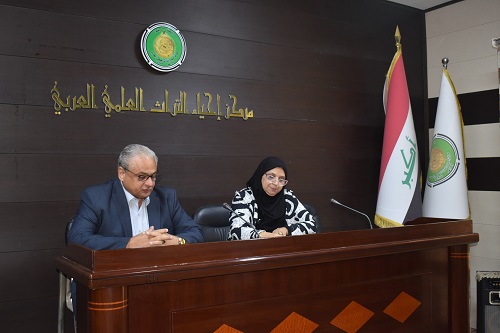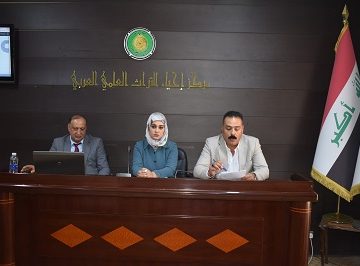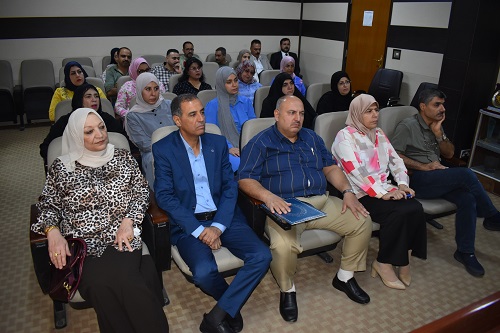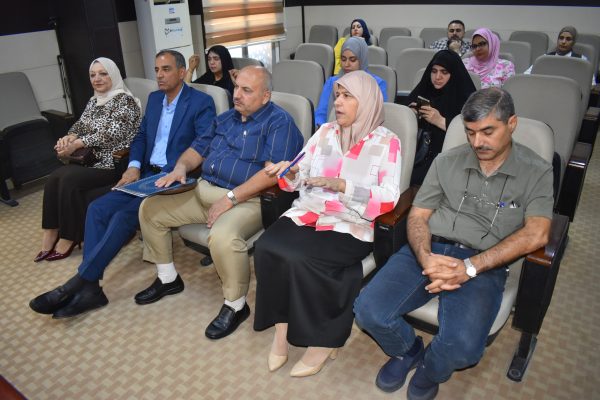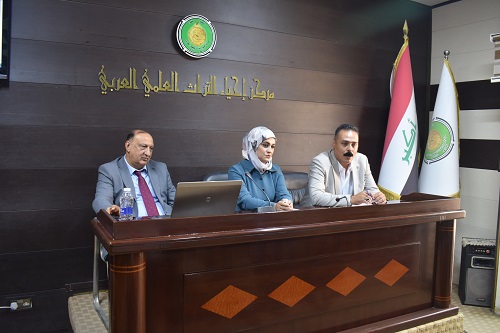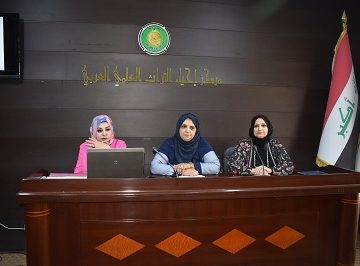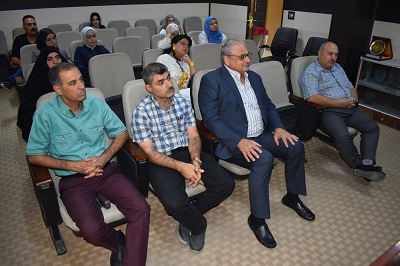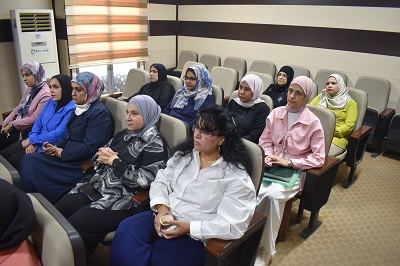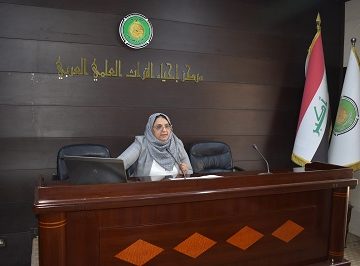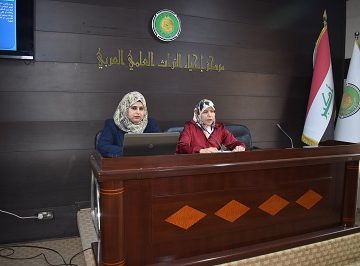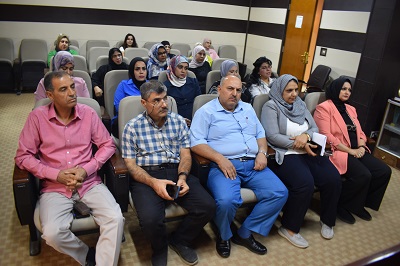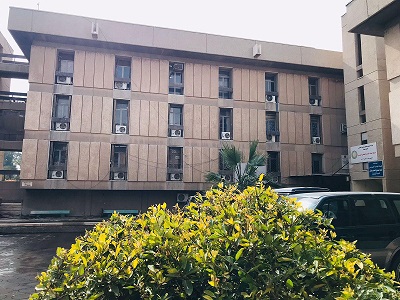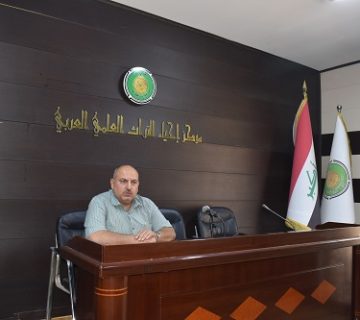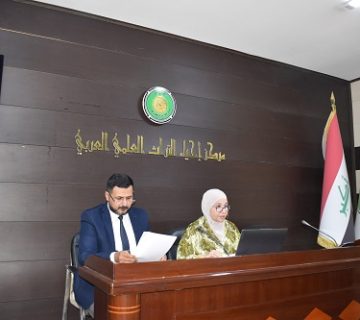
The center of heritage revival organizes workshop
Under the supervision of Professor Dr. Laith Majeed Hussein, Director of the Center for the Revival of Arab Scientific Heritage at the University of Baghdad, the Quality Assurance and University Performance Unit in the Center organized an off-plan workshop on Wednesday, October 8, 2025, attended by the Center’s faculty members and staff, and held in the Hall of Professor Nabeela Abdul Muneim Dawood.The workshop was entitled “Quality and Its Impact on the Job Performance of University Employees.” It was chaired by Assistant Professor Dr. Bashair Mowloud, Head of the Quality Assurance Unit, along with the unit team members Mrs. Farah Abdul-Kadhim and Mr. Samer Haseeb.
The speakers explained the importance of applying quality standards in universities as a strategic approach to achieving institutional excellence and improving job performance. They emphasized that quality contributes to enhancing the efficiency of academic and administrative operations, optimizing the use of resources, and strengthening job satisfaction and professional belonging through clear standards and well-defined roles and responsibilities. Dr. Mowloud stressed that job performance is closely linked to quality, as the clarity of quality standards increases commitment, discipline, and innovation at work. Studies indicate that implementing total quality management systems can improve performance by 20% to 40%. Quality also plays a vital role in curriculum development, improving educational outcomes, and streamlining administrative procedures. The workshop further highlighted that administrative leadership plays a central role in promoting a culture of quality and motivating employees toward creativity. Key requirements for activating quality include staff training, adopting fair and motivating evaluation systems, and overcoming challenges such as resistance to change, weak follow-up, and lack of incentives. The workshop aimed to emphasize that quality is a collective responsibility that seeks to achieve institutional excellence and sustainable development within the university through clarifying the items of the applied paper and electronic evaluation forms. Several participants contributed comments and discussions during the session. At the conclusion of the workshop, Mr. Fares Issa Fares, Director of Administration at the Center, expressed his gratitude to the Quality Assurance Unit team, wishing them continued success and excellence in their work.
